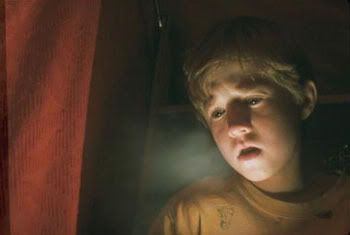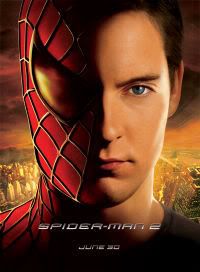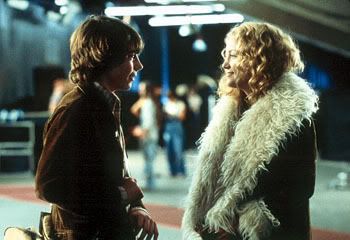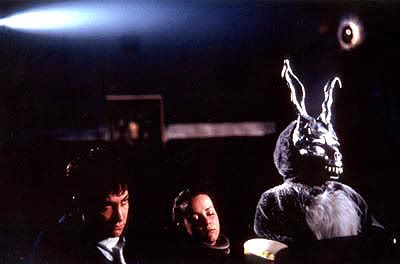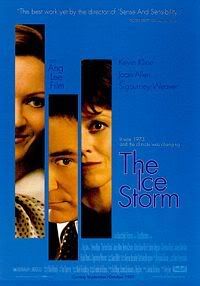Matt Damon once remarked in an interview that it would be a good idea if Oscars were given out a full decade after their release, as he felt that was the gap needed to make a determination on the best of that year. While this site clearly isn't the Oscars, it at least now has the benefit of something it didn't before: Hindsight.
So, now it's time to find out. In celebration of 10 Years of "Jeremy The Critic," my picks for the top 10 films of each year from 2006-2015 will be gradually revealed. Unsuccessfully cramming to see all the year's films before it's end has prevented me from compiling these so now it's make-up time. With apologies to ESPN, it's a little project I'll be calling "10 FOR 10," as I unload 10 Top 10's.
We'll find out which films survived the long trek, maintaining or increasing their standing in my mind, and which slipped, as the bloom comes off the rose for titles I may have originally raved about. Now, they'll all face the ultimate equalizer: FATHER TIME. A review is so often an immediate reaction to what you've seen, while a star rating counts for far less. This will be something else entirely.
Other than in the case of rare, tie-breaking situations, I'm not planning to rewatch anything, instead going with my gut in these rankings and selections. Some years I know exactly what's going to happen while others are still very much up in the air, but you can definitely bet on some surprises. I'm avoiding long, laborious explanations of each in favor of a choice review quote I feel says it all, accompanied with brief write-up where I reflect on how that year's list turned out. Let's get it going with what's unfortunately the weakest movie year of them all: 2006
2006
It feels like I'm just filling slots here, which is never good. The silver lining is that this will be followed by the strongest film year of the decade in 2007. Let's get the big questions out of the way first: Where's Pan's Labyrinth, Children of Men, Borat or The Fountain? I initially gave the former four stars, but now I need to actually be reminded of its existence. The other two I waffled back and forth on because they just haven't stayed with me at all. Notes on a Scandal, Marie Antoinette, and to a lesser extent, Casino Royale, were weaker runners-up that just missed the cut. It's possible that with another viewing one or more of those could have snuck in. Or not.
I had two choices in approaching a year this weak: Stick with what I originally had (with some minor, necessary adjustments) since so few of them were rewatched, or just make a systematic countdown of the technically best, critically acclaimed films of the year. Hopefully you appreciate me going with the former since you could just look at a bunch of other lists for that.
The only surprise inclusion is The Night Listener, which I had rewatched shortly after Robin Williams' passing and discovered I underestimated it. Featuring one of the actor's quietest dramatic performances, the whole package (which features a thought-provoking, ahead of its time premise) proves more memorable than many of the aforementioned prestige dramas critics were drooling over. V For Vendetta, The Descent and Clerks II are all just fine but I'd be lying if I said any would make it in a stronger year (or in this case nine stronger upcoming ones). While its recent influence on Mr. Robot proves Vendetta's reach was perhaps greater than expected, the inclusion of Clerks II kind of bothers me since I have this strange feeling it (or any other Kevin Smith film) wouldn't hold up now. That it still got in should let you know how little I think of this year.
Stranger Than Fiction has aged really well, partly because Ferrell hasn't done anything like it since. Other than my top two, it might be the only film here I feel any kind of passion for. Time couldn't dilute United 93's immediacy and power, even if its a film to respect rather than admire. Best Picture winner The Departed is just kind of a given, with its inclusion feeling almost like a contractual obligation at this point. Iñárritu's constant presence and versatility throughout the decade only bolsters the already strong multi-character, cross-cultural Babel in hindsight.
The first true discovery of '06 was Brick, starring Joseph Gordon-Levitt and helmed by future Breaking Bad and Star Wars director, Rian Johnson. If ever there was a time to say I told you so, it's now, with both continuing to creatively explode ten years on. But the top spot goes to Todd Field's Little Children, the most masterfully acted and directed film of the year in my favorite movie sub-genre: Nightmare in American Suburbia. It carries that torch proudly by being the most frighteningly realistic and disturbing drama that year. Over time, it's left the deepest cut.
10. The Night Listener
"The big draw of this film isn't the mystery, but the underlying idea behind its premise. How trusting should we be? Can we accept anything at face value anymore? Something to think about in this digital age where we communicate with people daily, yet can never know for sure who they really are." - 1/13/07
9. V For Vendetta
"The relationship that develops between her and the masked man, his history, and his motives for destroying the government build the framework for an emotionally complex tale that also happens to be pretty gory at times." - 8/2/06
8. The Descent
"In a way, the movie is almost a throw back to the horror films of the seventies, where the main objective was to torture you with suspense, then pick and choose your openings to deliver just the right amount of thrills and gore. It's not what you show, but what you don't, and how." - 1/10/07
"The original Clerks was an excellent first feature by a film student that changed the course of independent cinema in the 90's. This is a more mature effort by an accomplished filmmaker at a different place in his life with more things to show and prove." -12/9/06
6. Stranger Than Fiction
"Harold Crick is an I.R.S. agent stuck in what could be called a routine. In actuality, he leads a painfully boring existence, but that doesn't really occur to him. It wouldn't since those immersed in their routine rarely stop to consider if they're bored or not, or more importantly if they're even remotely satisfied or happy."- 3/2/07
5. United 93
When we're finally in the air, there's more waiting. It becomes clear these terrorists really don't have much of a plan. They keep looking at each other, wondering when it's the right time. They can never agree. The sloppiness of the situation only makes it scarier. There were points when I felt like screaming at the screen for them just to do it so it's over with." - 9/11/06
4. The Departed
"The dangerous, heart-pounding game between the two main characters and the visceral energy DiCaprio and Damon infuse in them is where the meat of the film lies, making it one of Scorsese's most psychologically complex works. This is a movie about choices. Both good and bad." - 2/19/07
3. Babel
2. Brick
"Gordon-Levitt does things in this movie few actors his age could reasonably be expected to pull off at this point in his career. At first, it's off-putting seeing this scrawny kid with glasses walking around like a brooding mini-Brando, beating the hell out of everybody. Yet it's a testament to his abilities that after a while we don't question it at all. He pulls it off, building his reputation as one of the best rising young actors of his generation." - 9/9/06
1. Little Children
"From the opening scene, with figurines rattling on a shelf as the sound of an oncoming train approaches, we're prepared for tragedy as these characters' lives threaten to intersect in the worst possible way for over two tension-filled hours. Rarely does a film get so many little details right and hide such small treasures for the viewer to discover. - 5/13/07
Top Ten Films of 2006
1. Little Children (dir. Todd Field)
2. Brick (dir. Rian Johnson)
3. Babel (dir. Alejandro González Iñárritu)
4. The Departed (dir. Martin Scorsese)
5. United 93 (dir. Paul Greengrass)
6. Stranger Than Fiction (dir. Zach Helm)
7. Clerk II (dir. Kevin Smith)
8. The Descent (dir. Neil Marshall)
9. V For Vendetta (dir. James McTeigue)
10. The Night Listener (dir. Patrick Stettner)











